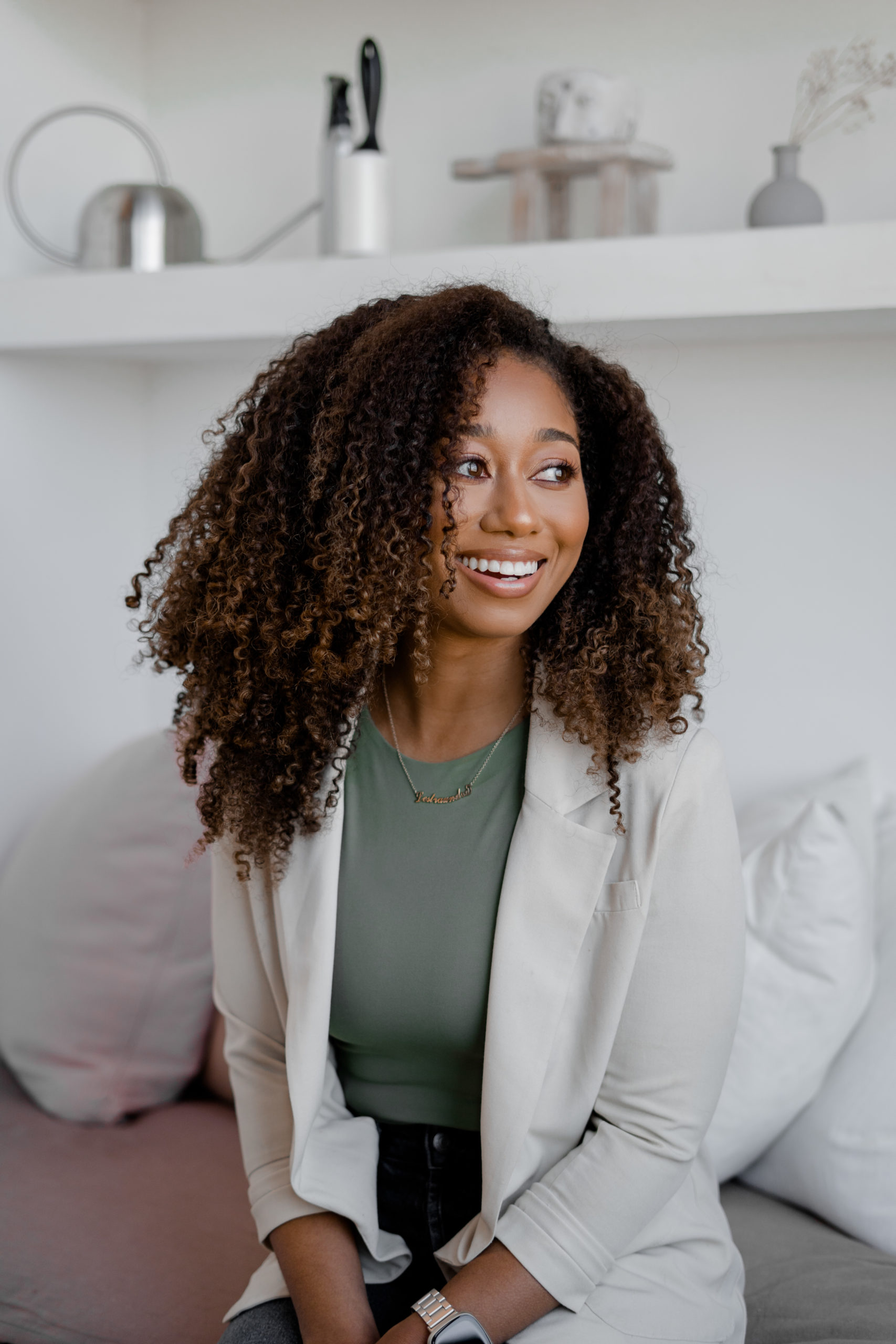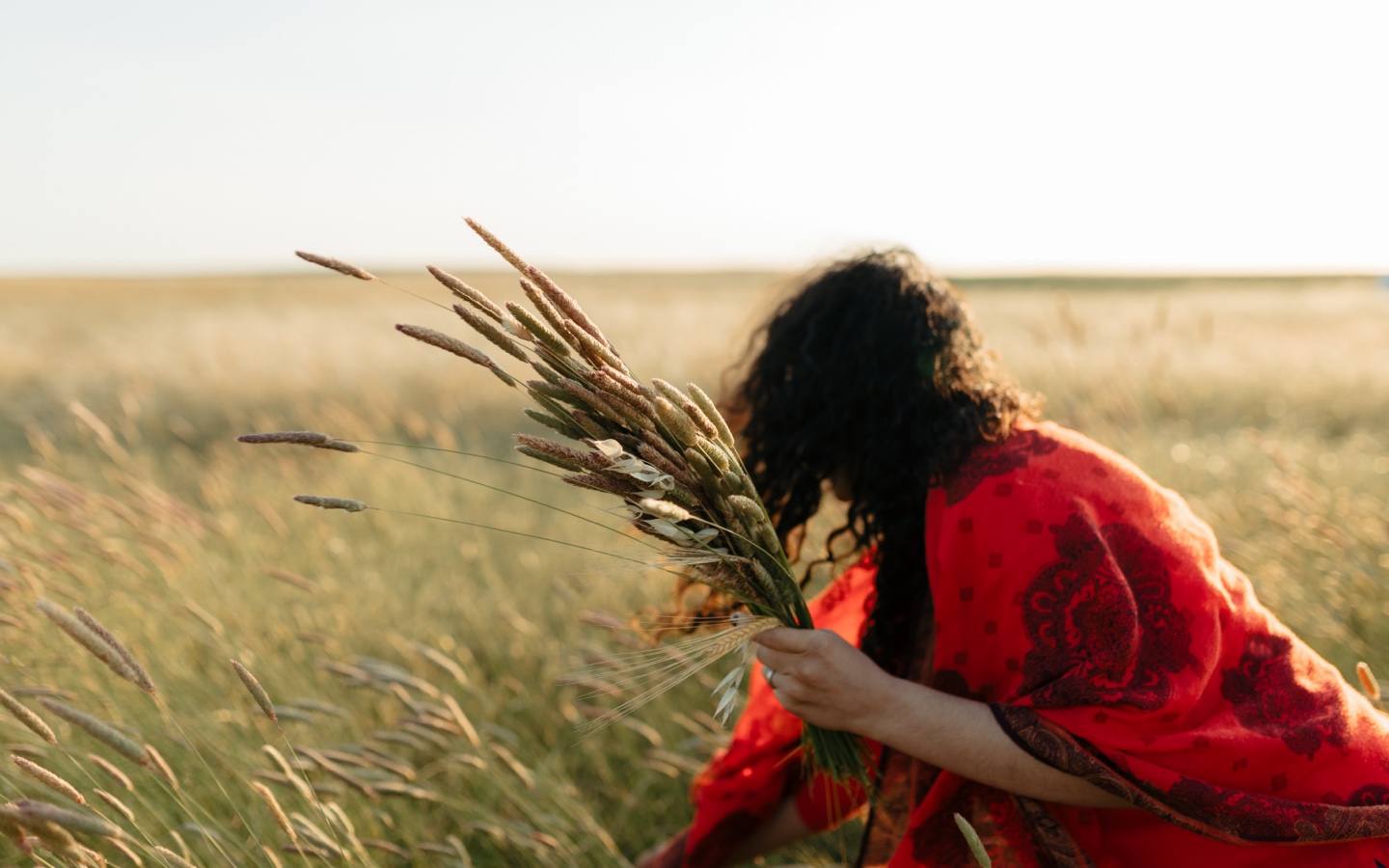When we focus too heavily on self-development, it becomes toxic to our mental health. We talked to Les Alfred, founder of Balanced Black Girl, about how to break the cycle.

Les Alfred, founder and host of the podcast and online platform Balanced Black Girl, has created a dedicated space for conversations about mental, physical, and emotional health from the perspectives of Black women. Podcast episodes tackle everything from body literacy and social media boundaries to reset rituals and reframing our relationship with exercise. On Instagram, she connects with her community through humor-laced reflection and vulnerability about her own wellness journey.
What you won’t find in Alfred’s content is the message that you’re a problem that needs to be solved or a focus on the metrics of self-optimization. That’s increasingly rare in the health and wellness industry, where there’s an app, watch, and even a ring at the ready to track and analyze it all — our sleep patterns, steps, screen time, diet, even our negative thoughts. In fact, Americans’ addiction to achieving an optimal body and mind has resulted in a U.S. wellness industry valued at $1.2 trillion, nearly double the size of the second-largest market, China, and accounting for 28 percent of the global wellness industry.
For her part, Alfred, who spent much of her adult life pursuing both mental and physical personal development to become the “best version” of herself, has a much different outlook on self-development than she once did. “The self-development trap can be intoxicating — to go after and romanticize that best version of ourselves. But I’ve come to realize being my best self doesn’t mean molding myself into someone unrecognizable,” says Alfred. “It’s stepping into and nurturing who I am.”
We talked with Alfred about her own shift in mindset, her “maintenance” mantra, and the first steps to take in breaking the self-development cycle.

Read more: How to Boost Your Mental Fitness
LA: For me, a lot of it revolved around my relationship with exercise, which is often a gateway to the self-optimization cycle. When I first became involved in fitness a decade ago, I started out with good intentions. I wanted to be healthier, and I wanted to be stronger. But that quickly evolved into caring about aesthetics and constantly tracking whether I was getting faster or whether I could lift heavier.
It was always a question of whether I could do “more,” and I started to apply that line of thinking to other areas of my life. When I began reevaluating my relationship with fitness, I gave myself permission to look at those other areas of my life as well.
LA: I looked at it as a reframe — instead of thinking in terms of what I needed to change about myself. How could I approach an area in my life that wasn’t working for me — in this case, wellness, and change the way I think about it?
At the time, I worked in a chaotic environment, my home life was stressful, and I realized the high-intensity fitness practices I was doing were actually making it worse. I wasn’t giving myself space to come back down and just felt like I needed some relief.
I couldn’t immediately fix what was happening at work or at home, but I could control the daily practices that were exacerbating my stress. I also stopped looking for specific quantitative or aesthetic results from any practices I was doing, whether that was fitness or something like journaling. I learned not to look to one practice as a cure-all. If I finished a journaling session and was still in a bad mood, that was okay.

Read more: 7 Easy Ways to Practice Gratitude
LA: Not as much now. I find myself using the word “maintenance” quite a bit, though. I was feeling irritated the other day that there’s always five more loads of laundry to do when a mantra popped into my head: The life you want requires maintenance.
I don’t have to do that extra load of laundry or mop the floor, but I do it because having a clean space means a lot to me. Instead of thinking of movement as self-development, I think of it as wanting to maintain a healthy body that works for me as I age. And I want to maintain a sharp and creative mind, which for me, comes from journaling and meditation. I would love it if these things just magically happened, but sometimes it does take action on our part.
When I started thinking of those practices as actions of maintenance for the life I want, instead of problems to be fixed, it was a really helpful reframe.
LA: Start with reflection and reevaluate from there. Why did you get on the optimization train in the first place, and what is it specifically that you’re hoping to get out of it? Is that thing still important to you?
When I asked myself that question, I realized that thing really didn’t matter anymore. Maybe it will, and you can go from there. But understanding the why, and whether it still resonates, is a good place to start.
Read more: 7 Essential Mental Health Podcasts
This interview has been edited and condensed.
Have feedback on our story? Email [email protected] to let us know what you think!

Shop Pillows
The Essential Organic Pillow Collection
Gentle, breathable, non-toxic support.





